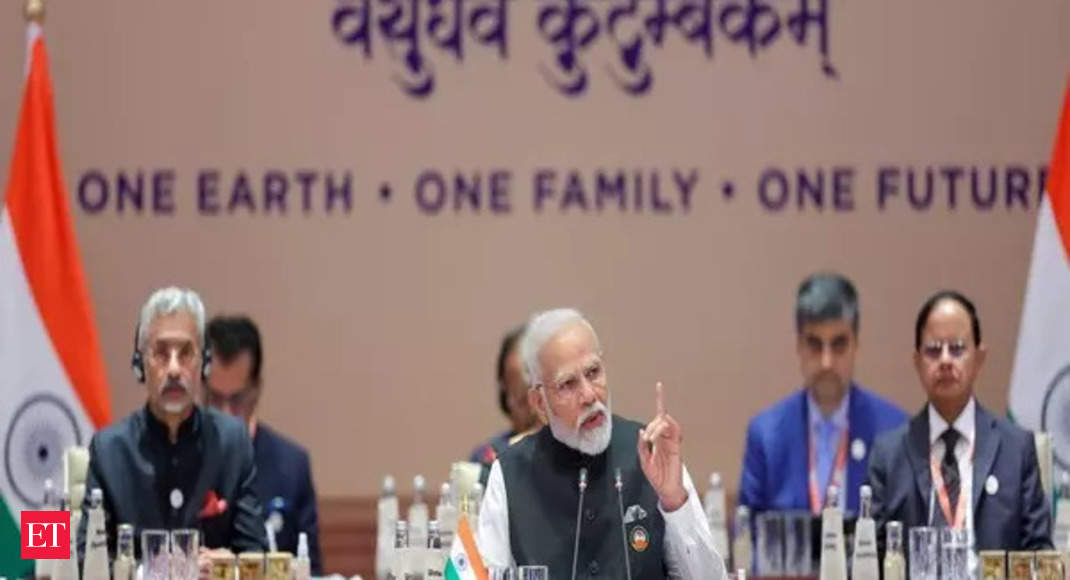The G20 summit held in New Delhi resulted in the adoption of the New Delhi Declaration. The declaration, adopted unanimously, highlighted the urgent need for coordinated steps to support the world economy, which is facing an uncertain outlook. The leaders recognized the debt vulnerabilities of low and middle-income countries and emphasized the need for expeditious and effective redressal of these vulnerabilities.
In the 83-paragraph declaration, the G20 proposed several key actions. One of the major focuses was on climate change, with the introduction of a green development pact and sustainable development goals. The G20 also admitted the African Union into the group, emphasizing inclusivity.
Another significant proposal in the declaration was the regulation of crypto-assets. The G20 called for putting crypto-asset regulation on the global agenda, recognizing the importance of addressing risks and ensuring the stability of the financial system.
Reforming multilateral development banks (MDBs) was also a key aspect of the New Delhi Declaration. The G20 leaders committed to undertaking necessary reforms in MDBs to strengthen their effectiveness in supporting sustainable development and infrastructure projects.
The adoption of the New Delhi Declaration was a remarkable diplomatic success for India’s presidency. Despite initial divisions, especially concerning the Ukraine-Russia conflict, the leaders were able to reach consensus on various issues. Prime Minister Narendra Modi expressed his satisfaction with the adoption of the declaration and highlighted the collaborative spirit of the G20.
The declaration also addressed the Ukraine war, emphasizing the importance of upholding the principles of international law and condemning the use or threat of use of nuclear weapons.
The G20 summit showcased a shift since the last year’s summit in Bali. External Affairs Minister S Jaishankar emphasized that the Bali and New Delhi Declarations respond to the situations of their respective times. He highlighted the comprehensive nature of the New Delhi Declaration and the consensus achieved on the portions related to Ukraine, including China’s involvement.
On the first day of the summit, the G20 also highlighted other crucial areas of focus. The leaders proposed actions to phase down unabated coal power, remove inefficient fossil fuel subsidies, and provide low-cost financing for energy transition in developing countries. They also emphasized the importance of leveraging private capital and promoting innovative financing models for development projects.
In terms of international financial institutions, the G20 called for their reform, recognizing the need to improve their effectiveness and relevance. Additionally, the leaders emphasized the importance of enhancing cross-border payments to be faster, cheaper, more transparent, and inclusive.
India’s presidency of the G20 emphasized the significance of global inclusivity, particularly for the Global South. The admission of the African Union as a permanent member was a notable step in this direction. The leaders condemned terrorism and recognized it as a serious threat to international peace and security.
Overall, the adoption of the New Delhi Declaration at the G20 summit reflected the collective efforts of the leaders to address global challenges and work towards a more prosperous and harmonious future.











